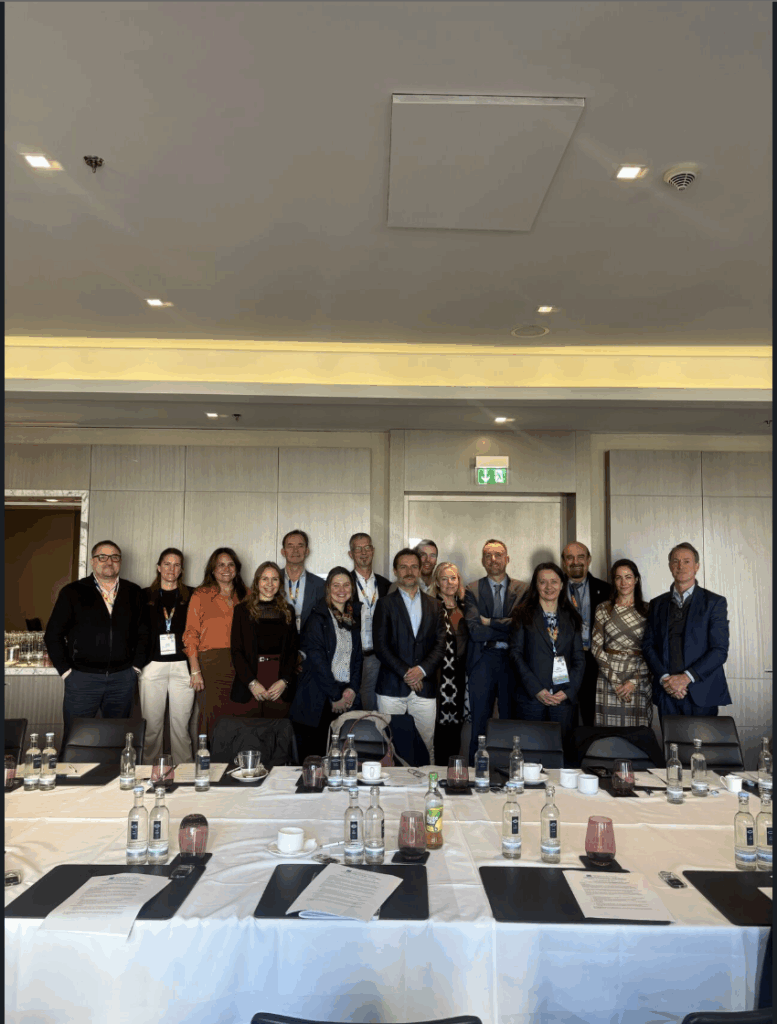Berlin, 20 October 2025 — The European Alliance for Personalised Medicine (EAPM) brought together experts from across Europe at ESMO 2025 for an interactive roundtable examining how behavioural science, digital innovation, and precision oncology can work together to reshape cancer prevention and care.
A key highlight of the discussion was the Horizon Europe project iBeChange, led by Professor Gabriella Pravettoni and coordinated by the European Institute of Oncology (IEO). Representing the project, Luca Mazzarella and Valeria Sebri contributed insights on how behavioural and psychological models can be integrated into the digital technologies increasingly central to modern oncology.
Speaking at the session, Valeria Sebri outlined how behavioural science can strengthen digital health solutions, enabling interventions that are not only personalised but also emotionally responsive. This approach aims to support patients throughout the cancer continuum – from prevention to survivorship – by addressing both medical and psychosocial needs.
Aligning Innovation With European Health Policy
Participants linked the discussion to major EU health strategies, including Europe’s Beating Cancer Plan, the EU Mental Health Initiative, the European Health Data Space (EHDS), and the EU4Health Programme. Across these frameworks, a shared message is emerging: the future of cancer control requires a more connected, preventive, and person-centred approach.
Current initiatives such as DESIPOC (Developing a Sustained European Initiative for Psychosocial Oncology Care Provision) are working to embed psychosocial care more consistently across Member States. Yet evidence from the European Cancer Organisation shows that access to psychological support remains uneven across Europe – a gap that iBeChange is specifically designed to address.
Addressing Persistent Gaps in Psychosocial Oncology
The need for integrated psychosocial support was further underscored by findings highlighted in the ESMO Daily Reporter, which noted that patients undergoing precision oncology often experience confusion and anxiety. At the same time, only a minority of oncologists feel adequately trained to support vulnerable patient groups. Research shows that nearly 40% of newly diagnosed cancer patients face significant emotional distress, yet structured psychosocial care remains under-utilised.
How iBeChange Is Helping Shape the Next Frontier
iBeChange represents a new model for behavioural-digital integration in cancer prevention. By combining AI, wearable technologies, and behavioural analytics, the project aims to identify and address modifiable risk factors – including physical activity, diet, stress, and emotional wellbeing. The platform empowers individuals to take an active role in their health and supports healthcare professionals in delivering more personalised, psychosocially informed care.
As Valeria Sebri emphasised during the event, the moment has come to move beyond raising awareness and toward implementing change. Europe’s next step in cancer control lies in uniting behaviour, biology, and policy – ensuring that digital innovation enhances not only diagnosis and treatment, but also prevention and patient empowerment.

